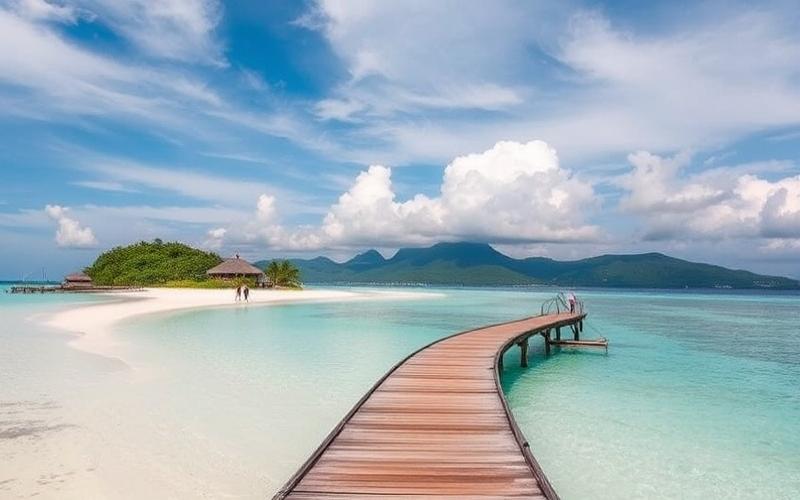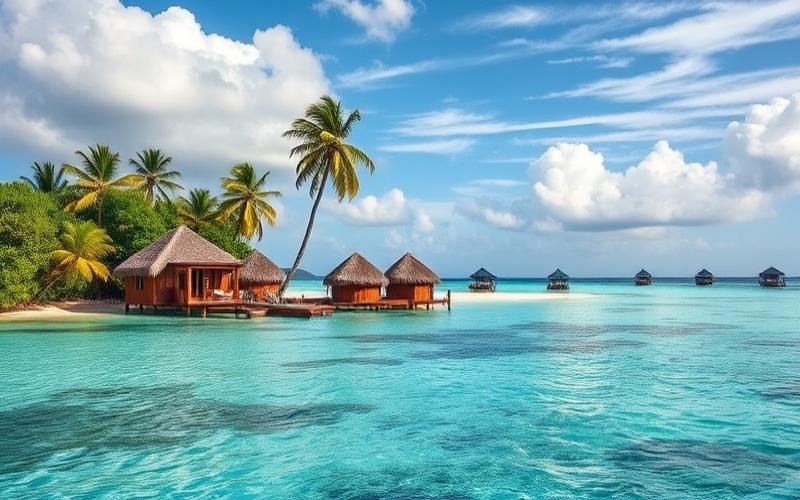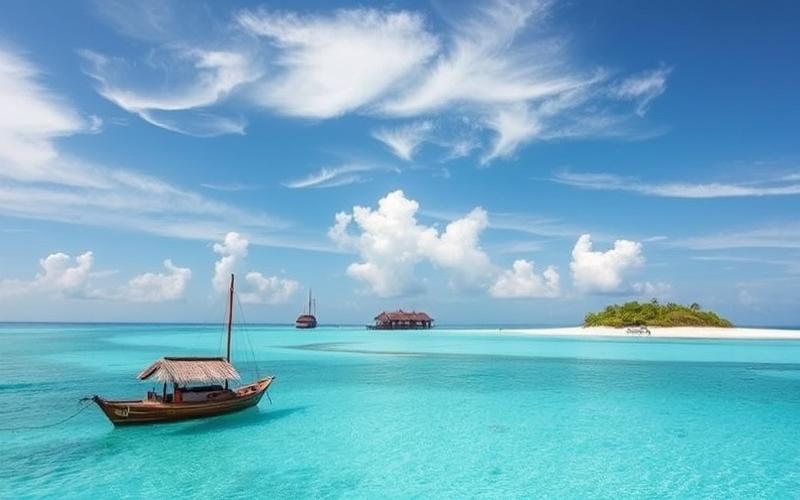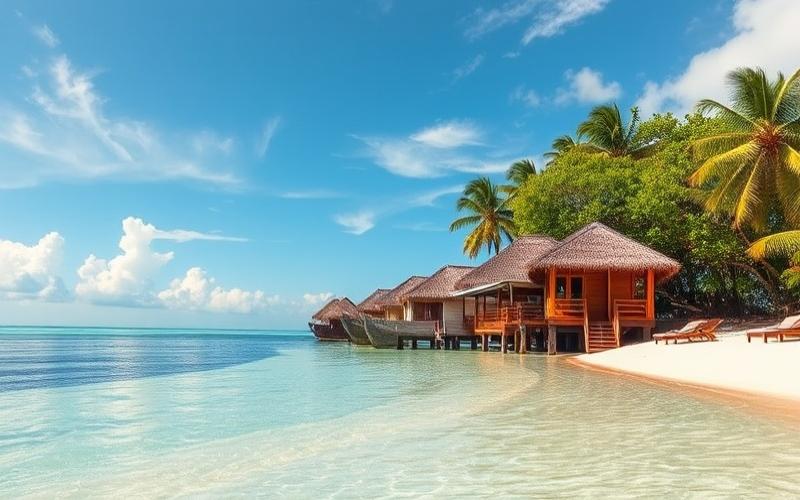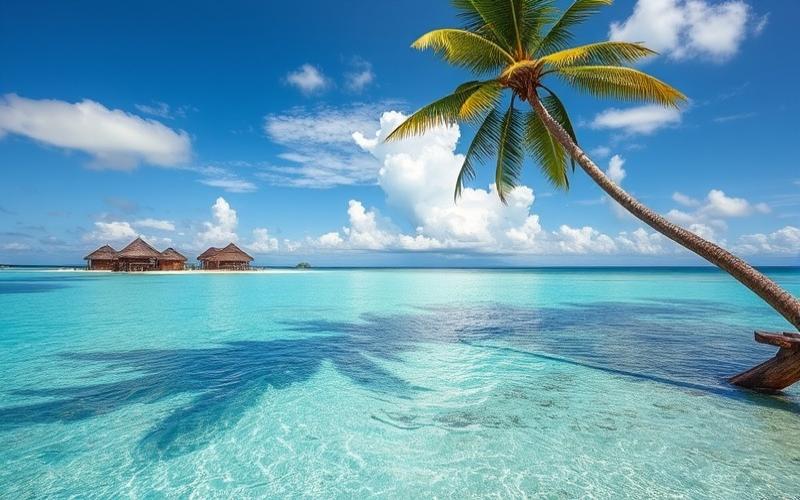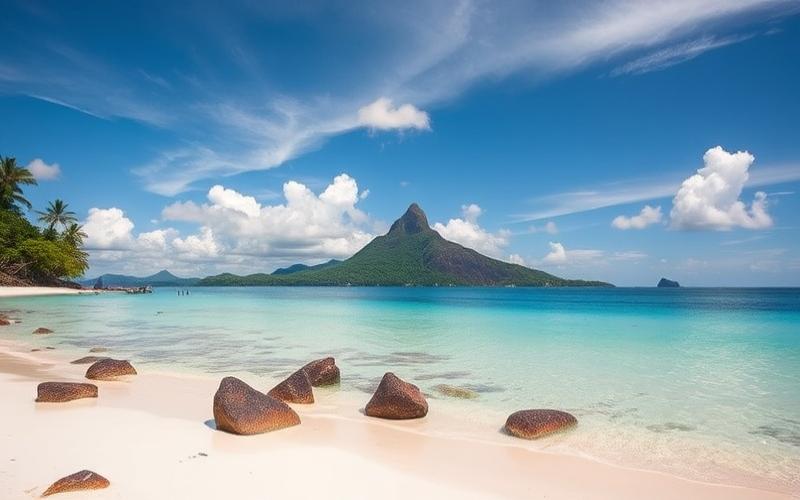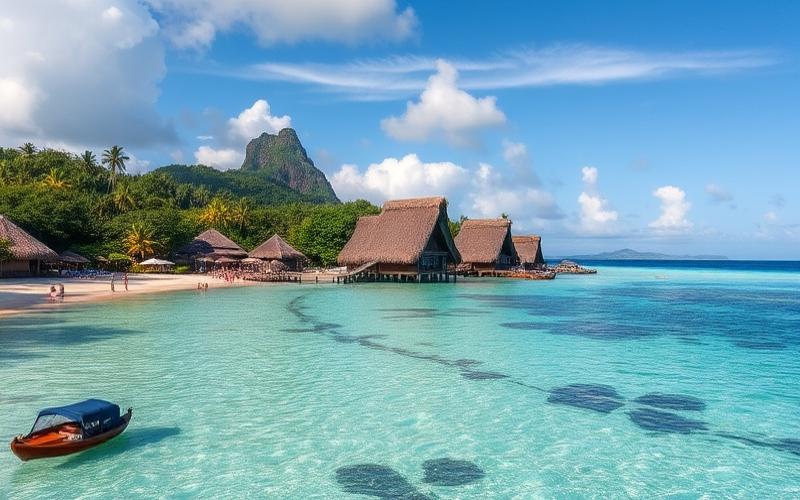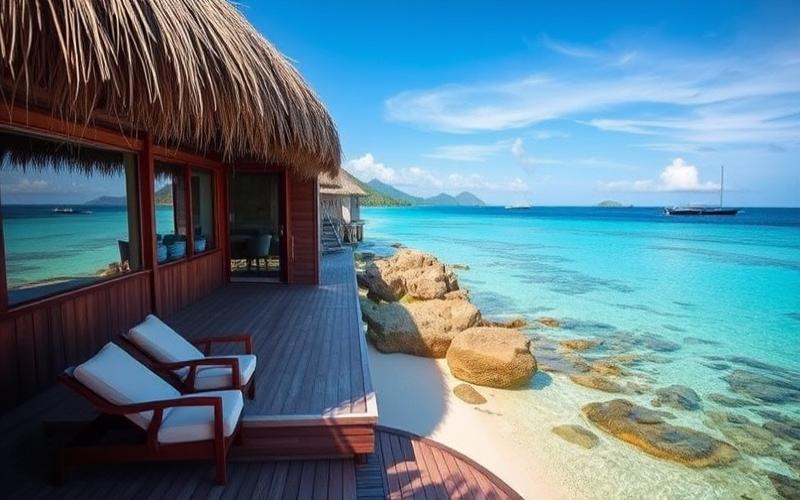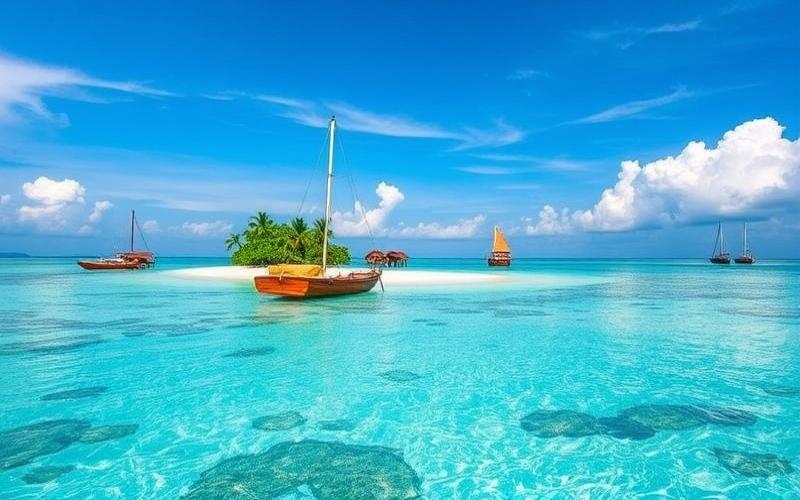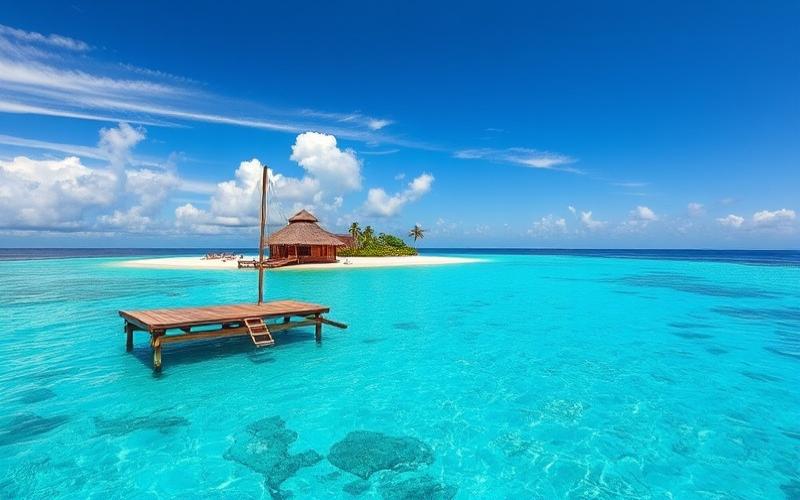
 Published on and written by Cyril Jarnias
Published on and written by Cyril Jarnias
The Seychelles, a paradise archipelago in the Indian Ocean, are attracting more and more expatriates seeking a change of scenery and quality of life. However, settling in this small island nation requires a good understanding of cultural differences to integrate harmoniously. Between Creole traditions, African and European influences, Seychellois culture is a unique blend that may surprise newcomers. Discover the essential cultural specifics to know before packing your bags for the Seychelles, to fully experience your expatriation in this corner of paradise.
Seychellois Pace of Life: Embrace the “Island Life”
The concept of time in the Seychelles is quite different from that in Western countries. Here, life moves to the rhythm of the sun and nature, far from the stress of big cities. Seychellois are accustomed to taking their time and appreciate slowness in their daily lives. This relaxed lifestyle, known as “island life,” can unsettle expatriates used to a faster pace.
To adapt, it’s important to learn to slow down and enjoy the present moment. Appointments and schedules are often approximate, and it’s not uncommon to see stores closing earlier than expected or opening late. This time flexibility also applies in the professional world, where deadlines may be more flexible than elsewhere.
Napping is an institution in the Seychelles, particularly appreciated during hot afternoons. Many stores and government offices close between 12 PM and 2 PM, or even later. As an expatriate, it’s advisable to respect these break times and adapt to this slower pace to avoid frustration and misunderstandings.
Good to know:
Adopt the “island time” philosophy by being patient and flexible in your daily interactions. Allow for extra time in your schedules and learn to appreciate a more relaxed pace of life.
Seychellois Friendliness: A Way of Life to Discover
Seychellois are known for their hospitality and friendliness. Social relationships are at the heart of local culture, and it’s common to see groups forming spontaneously to chat or share a moment together. This sociability may surprise expatriates from more reserved cultures.
To integrate, it’s important to cultivate these social connections. Don’t hesitate to start conversations with your neighbors or colleagues, even if you don’t know them well. Seychellois appreciate informal exchanges and are generally open to discussion, whether at the market, beach, or on the street.
Invitations to share a meal are a highly appreciated sign of friendship in the Seychelles. If you’re invited to someone’s home, it’s good manners to bring a small gift, like fruits or pastries. Punctuality isn’t crucial, but still avoid arriving too late. During the meal, try all the dishes offered to show your appreciation for your host’s hospitality.
Good to know:
Cultivate your social network by participating in local events and being open to invitations. Seychellois friendliness is a valuable gateway to integrating into the community.
Cultural Diversity: A Melting Pot to Respect
Seychellois society is a true cultural melting pot, resulting from African, European, and Asian influences. This diversity is reflected in the language, cuisine, and local traditions. Seychellois Creole is the national language, spoken by the majority of the population, but English and French are also commonly used.
To integrate, it’s recommended to learn some basics of Seychellois Creole. Even if you can manage in English or French, locals will appreciate your efforts to speak their language. Simple expressions like “Bonzour” (hello) or “Mersi” (thank you) can greatly facilitate your daily interactions.
Religion plays an important role in the lives of Seychellois, with a majority of Catholics but also Hindu, Muslim, and Buddhist communities. Respect for different beliefs is essential for good integration. Avoid controversial discussions about religion and respect religious holidays, which are numerous in the Seychellois calendar.
Good to know:
Embrace the cultural diversity of the Seychelles by showing interest in different traditions and learning a few words of Creole. This open-mindedness will greatly facilitate your integration.
Dress Codes: Between Casual and Respectful
Dress style in the Seychelles is generally casual, in line with the tropical climate and relaxing atmosphere of the archipelago. However, certain codes should be respected to avoid mistakes. In public places, avoid walking shirtless or in swimwear, except on beaches. For women, it’s preferable to avoid overly revealing outfits in residential areas.
In professional settings, the dress code is more formal, especially in government offices and businesses. Men often wear short-sleeved shirts and trousers, while women opt for dresses or elegant outfits suitable for the heat. Wearing a tie is generally not necessary, except for very formal occasions.
When visiting places of worship, respectful attire is required. Cover your shoulders and knees, and remove your shoes if necessary. These rules also apply during certain traditional ceremonies or visits to local homes.
Good to know:
Opt for light and comfortable outfits daily, but always keep more formal attire for formal occasions or visits to places of worship. Respecting local dress codes is a sign of integration that is appreciated.
Seychellois Cuisine: A Flavorful Journey Not to Miss
Seychellois gastronomy reflects the cultural diversity of the archipelago, blending Creole, Indian, African, and European influences. Seafood holds a special place, with iconic dishes like fish curry or sausage rougail. Tropical fruits, such as coconut, mango, or papaya, are also very present in local cuisine.
To integrate, it’s important to be open to these new flavors. Don’t hesitate to try local specialties, even if some may seem surprising at first. Seychellois are proud of their cuisine and will appreciate your culinary curiosity.
Sharing meals is an important part of Seychellois social life. Family or friend meals are often buffets where everyone serves themselves freely. Eating with fingers is common, especially for traditional dishes like pwason griye (grilled fish). If you’re invited to a meal, don’t hesitate to compliment the cook and ask for the recipe, which will be highly appreciated.
Good to know:
Explore Seychellois cuisine with curiosity and an open mind. Participating in local cooking classes or visiting markets to discover typical ingredients are excellent ways to immerse yourself in the archipelago’s culinary culture.
Traditions and Festivals: Dive into Seychellois Culture
The Seychelles are rich in traditions and celebrations that punctuate the archipelago’s life. The Kreol Festival, held every year in October, is the country’s major cultural event. It celebrates Creole heritage through music, dance, gastronomy, and crafts. Participating in these festivities is an excellent way to immerse yourself in local culture and build connections with Seychellois.
Other important events include the Sea Festival in December, which honors the close relationship between Seychellois and the ocean, or the Victoria International Carnival in February. These festivals are opportunities to discover traditional dances like moutya or sega, and appreciate local music.
Family ceremonies, like weddings or baptisms, are highlights of Seychellois social life. If you’re invited to one of these celebrations, consider it an honor. It’s customary to bring a gift and actively participate in the festivities, which can last several days.
Good to know:
Get involved in local cultural events to better understand and appreciate Seychellois traditions. It’s an excellent way to build lasting connections with the local community.
Social Etiquette: Subtleties to Know to Avoid Faux Pas
Politeness and respect are fundamental values of Seychellois society. It’s important to greet people you meet, even strangers on the street. A simple “Bonzour” or “Bonswar” will always be appreciated. When addressing an older person or someone in authority, use “Msye” (Mister) or “Madanm” (Madam) followed by the last name to show your respect.
In conversations, avoid sensitive political topics or direct criticism of the government or local institutions. Seychellois are generally discreet about these matters and prefer to maintain a harmonious atmosphere in social exchanges.
Physical contact is common in social interactions in the Seychelles, but it’s wise to pay attention to non-verbal signals. A handshake is the standard greeting, but among close friends, hugs or kisses on the cheek are not uncommon. However, avoid overly explicit displays of affection in public, as they may be poorly received.
Good to know:
Always be polite and respectful in your interactions, using appropriate polite expressions. Observe how locals interact with each other to better understand the subtleties of Seychellois social etiquette.
Work Relationships: Adapting to the Seychellois Professional Context
The work environment in the Seychelles has certain particularities that are important to understand for professional integration. Hierarchical relationships are generally less formal than in many Western countries, but respect for authority remains important. It’s common to call colleagues and even superiors by their first names, but always with a mark of respect.
Work meetings may seem less structured than elsewhere, with discussions sometimes straying from the main topic. It’s important to remain patient and adapt to this more relaxed pace. Decision-making may also take more time, as consensus is often sought.
The concept of punctuality is more flexible in the Seychellois professional context, but as an expatriate, it’s recommended to maintain some rigor in this regard. Arrive on time for your professional appointments, even if your counterparts may be late. This attitude will be appreciated and contribute to your positive professional image.
Good to know:
Adapt to the local work pace while maintaining your professionalism. Be patient in decision-making processes and prioritize building strong relationships with your colleagues and partners.
Managing Free Time: Enjoying Island Life
In the Seychelles, free time is considered precious, and leisure activities hold an important place in daily life. Weekends are often dedicated to family or friend picnics on the archipelago’s many beaches. Participating in these friendly moments is an excellent way to integrate and build connections with locals.
Water activities are very popular, whether fishing, diving, or simply swimming. Don’t hesitate to try these practices, which are an integral part of Seychellois culture. Hiking in national parks is also appreciated, offering opportunities to discover the archipelago’s rich biodiversity.
Nightlife in the Seychelles is relatively quiet, especially on weekdays. Bars and restaurants generally close early, except in some tourist areas. Evenings with friends at home are more common than nightclub outings. Adapt to this pace of life and take the opportunity to discover other ways to entertain yourself.
Good to know:
Embrace the island lifestyle by participating in local leisure activities. It’s an excellent way to integrate while fully enjoying the natural beauty of the Seychelles.
Expatriating to the Seychelles offers a unique opportunity to discover a rich and diverse culture while enjoying an exceptional living environment. By understanding and respecting cultural differences, you can experience a rewarding and harmonious expatriation in this tropical paradise. Remain open-minded, patient, and curious, and you’ll quickly discover that life in the Seychelles has much to offer.
Disclaimer: The information provided on this website is for informational purposes only and does not constitute financial, legal, or professional advice. We encourage you to consult qualified experts before making any investment, real estate, or expatriation decisions. Although we strive to maintain up-to-date and accurate information, we do not guarantee the completeness, accuracy, or timeliness of the proposed content. As investment and expatriation involve risks, we disclaim any liability for potential losses or damages arising from the use of this site. Your use of this site confirms your acceptance of these terms and your understanding of the associated risks.



